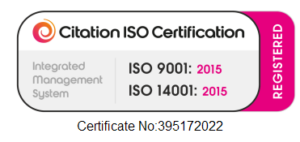Fraud, Corruption, Tax Evasion and Anti-Bribery Policy
LOGIN Construction Services LTD
Issued By/Contact: Director
1. Purpose
This policy sets out how everyone can comply with anti-bribery, anti-corruption and anti-tax evasion regulations
and our own Corporate Governance, and ensures that we conduct our business in a responsible manner.
2. Policy statement
We will conduct all of our business in accordance with our core values. We will act professionally, fairly,
honestly and with integrity in all our business dealings and relationships, wherever we operate.
We will implement and enforce effective systems to counter bribery, corruption and the facilitation of tax
evasion.
We will uphold all laws relevant to countering bribery, corruption and tax evasion, including the Bribery Act 2010
and the Criminal Finances Act 2017, in respect of our conduct. Bribery and corruption are punishable for
individuals by up to ten years’ imprisonment and a fine. If we are found to have taken part in corruption or failed
to prevent the facilitation of tax evasion, we could face an unlimited fine, be excluded from tendering for public
contracts and face damage to our reputation. We will act to ensure that our reputation for ethical business is
enhanced. We, therefore, take our responsibilities very seriously.
3. Scope
3.1 Who is covered by the policy?
This Policy applies to everyone and how they interact with third parties.
A third party is anyone (individual or organisation) you come into contact with during the course of your work.
This policy covers any act that could be considered Fraud, Bribery, Corruption or the facilitation of tax evasion.
You should ask yourself:
· Is the action in line with our core values?
· Is it legal?
· If it was reported in a newspaper or on social media would it reflect well on you and Login Construction? What
would management, colleagues, friends or family think?
3.2 Bribes
Bribery is the offering, promising, giving, accepting or soliciting of an advantage as an inducement for an action
which is illegal or a breach of trust. A bribe is an inducement or reward offered, promised or provided in order to
gain any commercial, contractual, regulatory or personal advantage. You must not engage in any form of
bribery either directly or indirectly.
3.3 Gifts and hospitality
Gifts of cash or cash equivalent offered to you are never to be accepted and are never to be offered by you to
anyone. Any other Gift, which exceeds £25 in value for each individual gift, or £250 in value for each hospitality
event (not to exceed a total value of £500 in any financial year), cannot be accepted unless approved in writing
by your MD /Operations Board Director. Approval for gifts or hospitality in excess £500 must be given by the
Group Finance Director. In all cases where approval is given, the Group Finance Director must be notified by
recording it on the Gifts and Hospitality Register.
3.4 Facilitation payments and kickbacks
Facilitation payments are a form of bribery. Facilitation payments tend to be demanded by low level officials to
obtain a level of service to which we would normally be entitled. Our strict policy is that facilitation payments
must not be paid.
3.5 Political contributions
We do not make donations, whether in cash or in-kind, in support of any political parties or candidates, where
this is or can be perceived as an attempt to gain an improper business advantage. Political contributions are a
matter reserved for the Board.
3.6 Charitable contributions
Our people and supply chain might on occasion request charitable support/donations, whether in services,
knowledge, time, or direct financial contributions. However, we must be careful to ensure that charitable
contributions are not used as a scheme to conceal bribery. We only make charitable donations that are legal
and ethical. No donation must be offered or made without prior approval – either from the Sponsorship and
Charitable Donations Committee or Director set out in the Committee guidelines. All charitable contributions
must be made to a registered UK charity, and are disclosed as part of our statutory accounts.
4. Facilitation of Tax Evasion
4.1 What is tax evasion and tax evasion facilitation?
For the purposes of this policy, tax evasion means both:
(i) cheating the public revenue or fraudulently evading UK tax, which is a criminal offence; and
(ii) evading tax in a foreign country (also known as foreign tax evasion).
Facilitation of tax evasion means being knowingly involved in assisting, or in taking steps with a view to
assisting, the fraudulent evasion of a tax by another person. Tax evasion facilitation is itself a criminal offence,
where it is done deliberately and dishonestly.
Under the Criminal Finances Act 2017, a criminal offence is considered to have been committed by a company
whenever tax evasion is facilitated by an employee or agent of that company, or a person providing services to
the company. In this policy, all references to tax include national insurance contributions (and their equivalents
in any non-UK jurisdiction).
4.2 What you must not do
You must not (or allow someone else to do any of the following on your behalf):
(i) engage in any form of facilitating tax evasion;
(ii) aid, abet, counsel or procure the commission of a tax evasion offence by another person;
(iii) fail to promptly report, in accordance with this policy, any request or demand from any third party to facilitate
the fraudulent evasion of tax, or any suspected fraudulent evasion of tax by another person;
(iv) engage in any other activity that might lead to a breach of this policy; or
(v) threaten or retaliate against another individual who has refused to commit a tax evasion offence or who has
raised concerns under this policy.
5. Your responsibilities
The prevention, detection and reporting of bribery and other forms of corruption and tax evasion are the
responsibility of everyone. We must all avoid any activity that might lead to, or suggest, a breach of this policy.
You must notify your manager, MD or the Group Finance Director as soon as possible if you believe or suspect
that a conflict with or breach of this policy has occurred, or may occur in the future. It is important that you tell
your line manager, MD or the Director as soon as possible if you are offered a bribe by a third party, are asked
to make one, you believe or suspect that a third party may be taking part in tax evasion, suspect that any of the
former may happen in the future, or believe that you are a victim of another form of unlawful activity. If you are
unsure about whether a particular act constitutes tax evasion, you should raise it with your line manager, MD or
the Group Finance Director or through the confidential advice line as set out in our Whistleblowing Policy as
soon as possible.
We encourage openness and will support anyone who raises genuine concerns in good faith under this policy,
even if they turn out to be mistaken. If you are worried about reporting anything, or potential repercussions,
please refer to:
• Governance Manual (Directors Duties)
Anyone who refuses to accept or offer a bribe, or those who raise concerns or report another’s wrongdoing, can
be worried about possible repercussions. Our Whistleblowing Policy includes a confidential advice line. Anyone
who breaches this policy will face disciplinary action, which could result in dismissal for gross misconduct. We
reserve our right to terminate our contractual relationship with other workers if they breach this policy.
6. Record-keeping
We must keep financial records and have appropriate internal controls in place which will evidence the
business reason for making payments to third parties. You must keep a written record of all hospitality or gifts
accepted by, or offered to you. You must ensure all expenses claims relating to hospitality, gifts or expenses
incurred to third parties are submitted in accordance with our expenses policy and specifically record the
reason for the expenditure. All accounts, invoices, memoranda and other documents and records relating to
dealings with third parties, such as clients, suppliers and business contacts, should be prepared and
maintained with strict accuracy and completeness. No accounts must be kept “off-book” to facilitate or conceal
improper payments.
7. Training
Training on this policy forms part of the induction process for all new people. Existing people will be tested to
check their understanding of those and this policy every year. If you feel you need additional training, please
contact your line manager and Group Finance Director.
8. Communication
This Policy is freely available to everyone on our website. Our approach to bribery, corruption and tax evasion
must be communicated to all suppliers, contractors and business partners at the outset of our business
relationship with them and as appropriate thereafter.
9. Who is responsible for this Policy?
The Board of Directors has overall responsibility for ensuring this policy complies with our legal and ethical
obligations, and that all those under our control comply with it.
The Finance Director has primary and day-to-day responsibility for implementing this policy, and for monitoring
its use and effectiveness and dealing with any queries on its interpretation.

